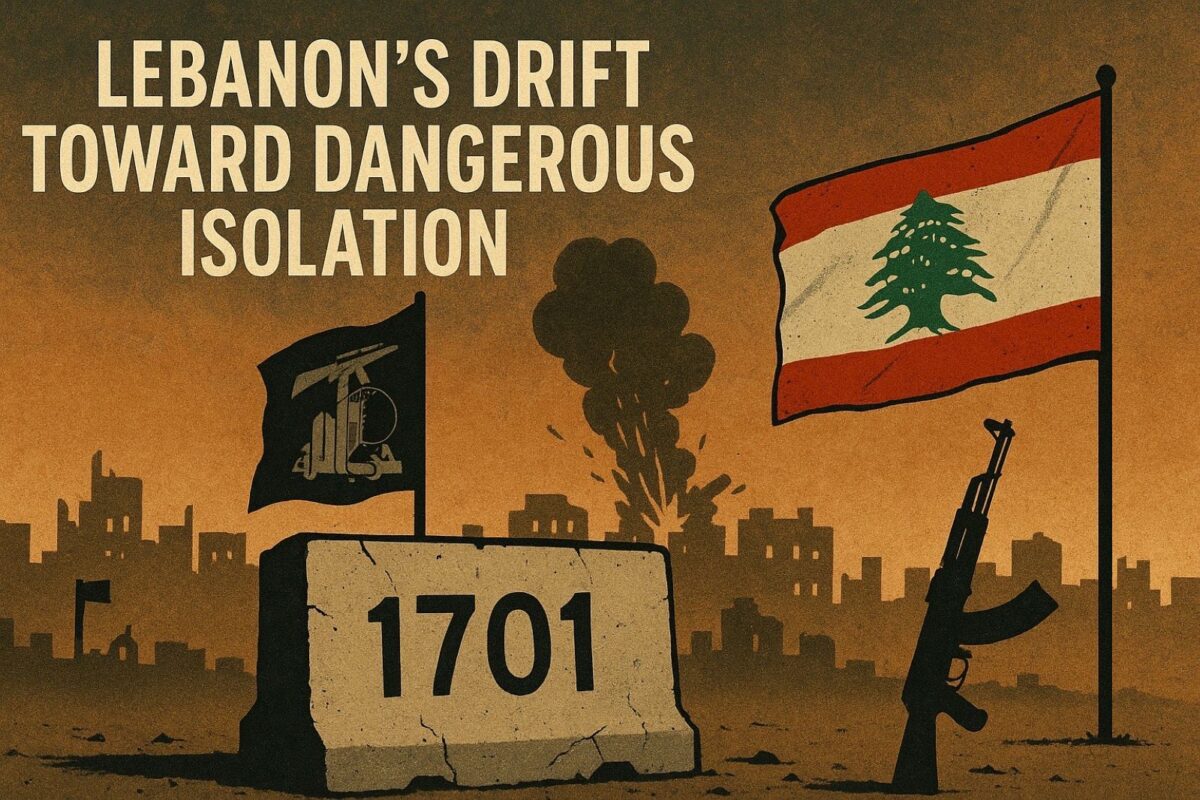
Quick Take:
Despite mounting regional warnings, Lebanon’s leadership continues to hide behind slogans of “gradual implementation” of Resolution 1701 — while Hezbollah’s weapons, Palestinian arms, and Israeli strikes expose the state’s growing irrelevance.
The Big Picture
Lebanon is sliding toward a new phase of instability.
U.S. and Egyptian officials have warned Beirut that allowing Hezbollah to remain armed and unaccountable will only deepen Lebanon’s isolation and invite confrontation.
The U.S. special envoy Morgan Ortagus has cautioned Lebanese leaders against ignoring the disarmament issue.
Egypt’s intelligence director has delivered the same message privately — the status quo is unsustainable.
Yet, Beirut insists that it is “gradually implementing” UN Resolution 1701, even as the reality on the ground proves otherwise.
The Reality
Israel’s ongoing strikes on Hezbollah targets — including senior operatives — reveal how little control the Lebanese state actually holds.
Officials claim progress on 1701, but Hezbollah’s cross-border operations continue unchecked.
Each Israeli strike is a reminder that Lebanon no longer commands its own battlefield.
The illusion of sovereignty grows thinner by the day.
Internal Unraveling
The killing of Elio Abou Hanna near the Shatila camp by gunmen from a so-called “Palestinian Security Committee” has reignited Lebanon’s oldest wound — multiple armies inside one country.
Palestinian factions still maintain weapons inside camps under the excuse of “self-protection.”
The incident shattered any illusion that Lebanese security forces maintain control of the capital.
President Joseph Aoun now faces mounting anger and pressure to enforce the state’s monopoly over arms.
The Southern Flashpoint
The recent Israeli incursion into Biladi, a southern border town, and the killing of a Lebanese citizen have revived the question: Who defends Lebanon?
Aoun insists the Lebanese Army is the sole defender of sovereignty.
But an exhausted, under-funded army cannot rebuild a collapsing state.
Hezbollah continues to dictate the tempo of confrontation, while the government watches from the sidelines.
Denial as Policy
Lebanon’s rulers have turned paralysis into strategy.
Instead of confronting Hezbollah or the camp weapons issue, they hide behind rhetoric of “national dialogue” and “resistance.”
Western and Arab allies are losing patience with this double discourse.
Lebanon risks being cut off diplomatically and economically if it continues to dodge its responsibilities.
Why It Matters
This is no longer a debate about reform — it’s about the survival of the state.
A government that cannot protect its citizens, assert its authority, or implement its own international commitments is one step away from collapse.
The Bottom Line
Lebanon cannot rebuild its economy or restore trust while surrendering its sovereignty.
Each day of denial brings it closer to a conflict it neither wants nor can afford — and this time, it may stand entirely alone.







